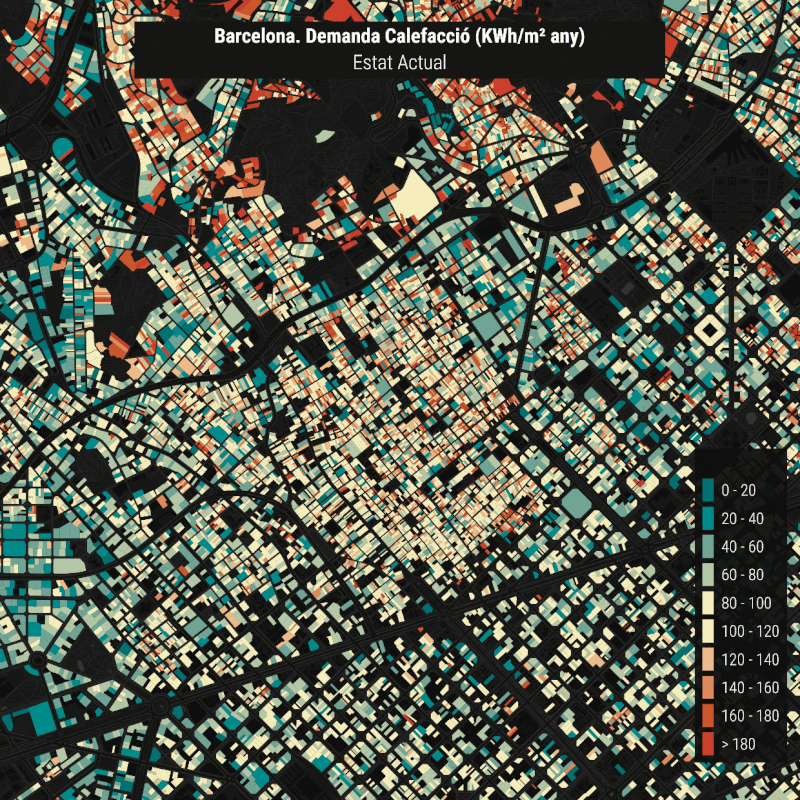Energy renovation plan in Barcelona
Proposal
The project arises from the desire of the IERMB and the O-HB to carry out an exploratory study to uncover the potential for improvement in the existing residential stock of the city of Barcelona in order to achieve the objectives of improving the quality of buildings in general, and the European objectives of decarbonisation in particular.
Objectives
The main objective is to generate the knowledge base to define the guidelines for the decarbonisation of the residential stock of the city of Barcelona in line with the requirements of the Next Generation Funds.
As well as to collaborate at the level of support and consultancy in the integration of this new knowledge in the OH-B work process in the framework of the laboratory “Renovation strategies and potential”. As specific objectives, the study is focused on:
- Analysis of available databases
- Architectural, energy and economic characterisation
- Intervention guidelines
- Technical support
Approach
The methodology used, based on the urbanZEB tool, allows energy simulation and economic characterisation of the 700,000 dwellings in the area. urbanZEB is part of a new generation of strategic tools based on the Urban Building Energy Model (UBEM) methodology, especially aimed at public administration and urban planning and architecture teams working on projects at the urban area level.
Results
The results of the study, in the form of a database and reports, are linked to the requirements of the NGEU Fund’s energy renovation programmes. In this sense, the physical diagnosis and improvement potential of the building stock is defined , using conventional and low carbon embedded materials, as well as active measures. For each building it is defined:
- Energy demand for heating, cooling, DHW and overall per m²,
- Energy rating for heating and cooling,
- Primary energy consumption for heating, cooling, DHW and overall energy consumption per m²,
- Energy rating of primary energy consumption for heating, cooling, DHW and overall energy consumption per m²,
- Energy consumption cost per dwelling,
- Minimum income to avoid fuel poverty per dwelling,
- Risk of energy poverty per dwelling.

Authors
Cíclica[space·community·ecology]
Client
IERMB Institut d’Estudis Regionals i Metropolitans de Barcelona, O-HB Observatori Metropolità de l’Habitatge de Barcelona
Project year
2021-2022
Date
23 de February de 2023
Category
Highlights, Urban Building Energy Models

